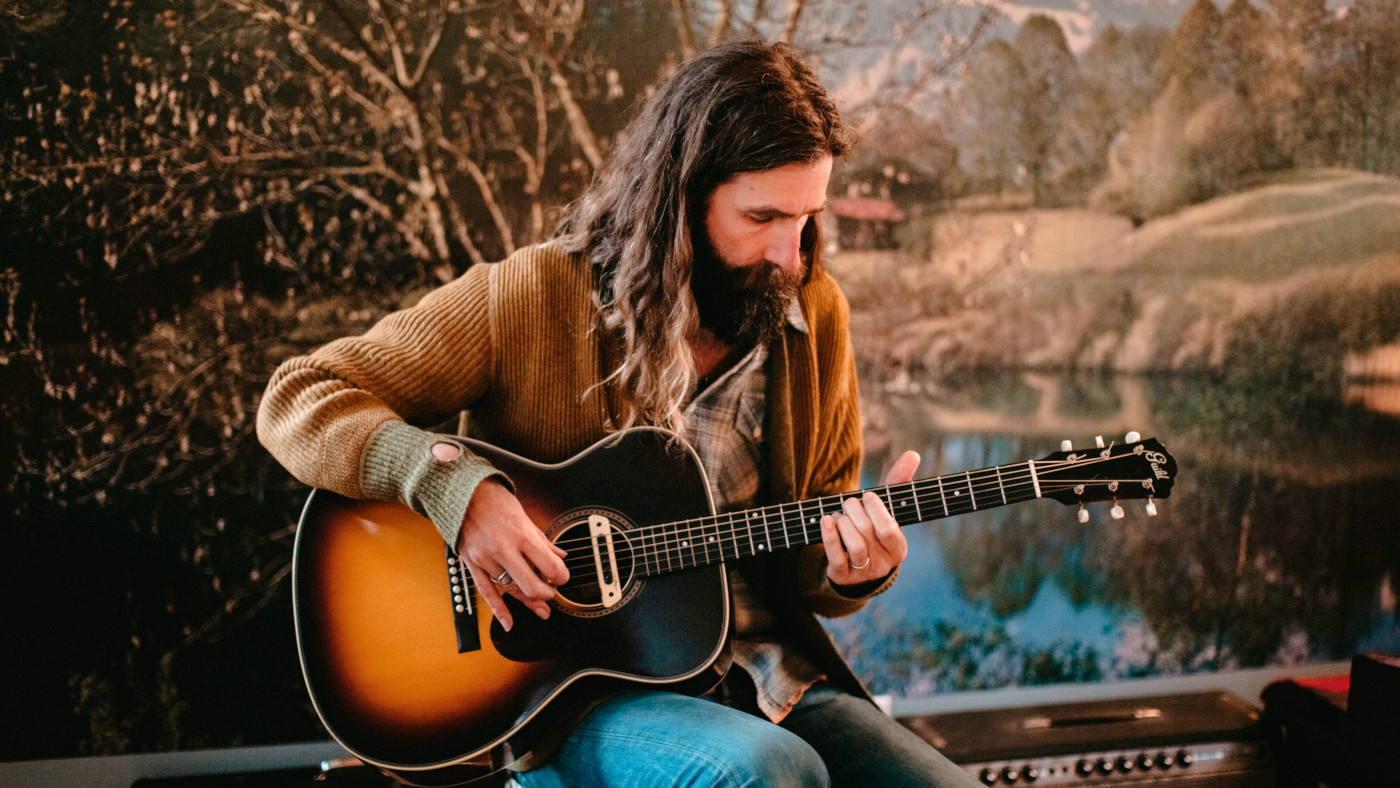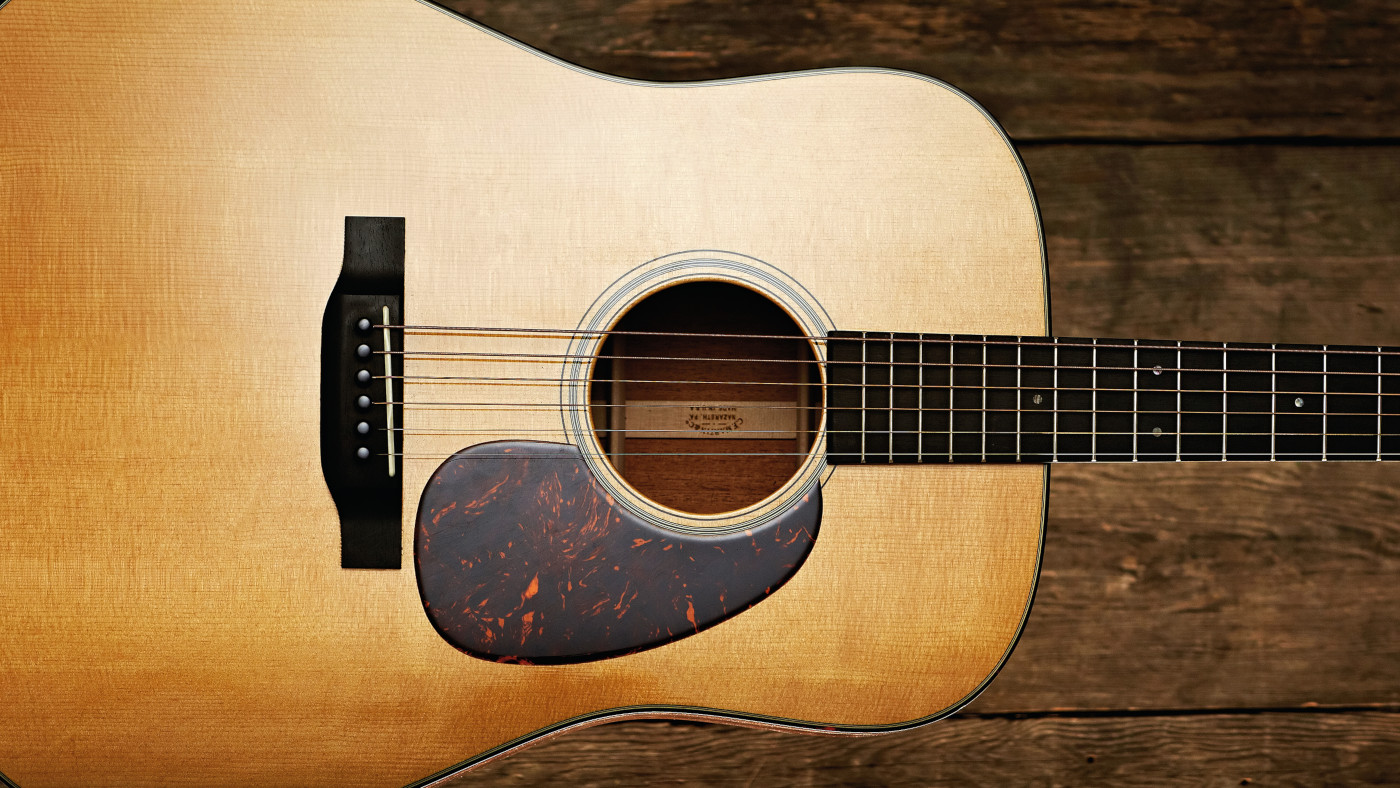Tyler Ramsey: “I was really fascinated with the idea of the guitar as something that could stand on its own”
The former Band Of Horses guitarist and solo songwriter on how homesick heartache fed into For The Morning

Want all the hottest music and gear news, reviews, deals, features and more, direct to your inbox? Sign up here.
You are now subscribed
Your newsletter sign-up was successful
In 2015, Tyler Ramsey should have been buzzing. Band Of Horses, in which he played lead guitar, were confirmed indie rock darlings and commercial successes - playing everywhere from Madison Square Garden to Glastonbury. And on the personal side, he had already married, moved to the beautiful North Carolina countryside and become the father to a baby girl.
My house and my family were only five hours away but I wasn’t going to see them for another two weeks, at least. It was that gut-sinking feeling
Parenthood has a habit of changing perspectives, though. Pining for his daughter, his wife and home (a former horse ranch just outside Asheville), what should have been a victory lap came to feel more like a prison sentence. Furthermore, it came to highlight the songwriter’s increasing unhappiness with his creative direction.
“It started shifting everything,” Tyler tells us. “Because if I was leaving home [at that point] and not feeling satisfied then it wasn’t really balancing out... Time is so precious when you have a child. It changed everything for me. My outlook, you know: am I doing what I need to do to be a happy and creative person and a good example? It all shifted.”
It was on a day off in a Nashville hotel room that the feeling hit him like a tonne of bricks. Stuck in a place he didn’t want to be with only a guitar for company he penned A Dream Of Home - the first song that would make his recently-released album For The Morning.
“I was just staring out the window and thinking of being at home, picturing what was going on,” he recalls. “It’s one of those songs about the grass being greener. My house and my family were only five hours away but I wasn’t going to see them for another two weeks, at least. It was that gut-sinking feeling of being that close but not seeing them.”
Tough decisions needed to be made and in 2017 Tyler left the group he had joined a decade previous and helped build. His first priority was time at home in Asheville, NC, to be with family and to get inspired for a return to the singer-songwriter career he’d put on hold for BOH. His hometown is teeming with musical history, all of which fed Ramsey’s attraction to the area, but none more so than the Piedmont blues players.
“I first came across country blues and Piedmont blues [when I was younger],” recalls Tyler. “I immediately wanted to learn that way of playing, with the alternating bass and the melody line. It seemed so effortless and down to earth and it really appealed to me... Then I remember early on getting cassettes of Leo Kottke, like A Shout Toward Noon. I was really fascinated with the idea of the guitar as something that could stand on its own.”
Want all the hottest music and gear news, reviews, deals, features and more, direct to your inbox? Sign up here.
Sketching a song
Fingerstyle can seem a formidable technique to a new player - a mystical and impenetrable practice. How did he find a way in? “It always is frightening, still!” agrees Tyler. “I’ll hear someone playing fingerstyle and be like, ‘Oh... I should probably stop’. But I’ve always been an ‘ear’ player, so I try to learn things just by listening to them and I was never too obsessed about learning things super accurately.”
I don’t think I’m some mind-blowing guitar player but I do think that I’ve been able to develop my own voice
It’s anathema to some guitar teachers, but the fact is that - as much as slowing things down and learning note-for-note may be the only way to properly nail a technique - being able to sketch a whole song is extremely important for a budding player’s motivation.
“Yeah, you get the foundation and then you develop it,” agrees Ramsey. “That’s the way folk music developed over the years anyway. You hear the stories of a guitar player that saw a guy at the train station and then ran home and learned how to play that song, and they turned it into their voice. I’ve been finding this more and more, lately. I don’t think I’m some amazing mind-blowing guitar player all the time but I do think that I’ve been able to develop my own voice and that is important as a player.”
For The Morning certainly proves that point. It’s a blues-y, beautifully-crafted guitar record wearing an Americana hat. It will appeal to fans of Band Of Horses, Fleet Foxes, Father John Misty et al, but offers more instrumental substance, subtly working in impressive fingerstyle touches (check out Darkest Clouds or Firewood) and an array of stringed instrumentation, including banjo and 12-string. What’s more, it’s a record of genuine insight into the torn headspace of the touring songwriter.
“I still get really emotional when I leave my house,” admits Tyler. “But I also know that this is satisfying work. [BOH] was successful and we built it over 10 years - but now I’m trying to build something else. I feel like I’m away from home for a reason. It’s what I’ve been working towards and now I’m doing it.”

Grandmother Martin
Tyler’s family folk tale
“One of my go-to acoustics was actually given to me by my grandmother,” Tyler tells us. “Her maiden name was Martin and she remembered me telling her when I was younger that I wanted to get a Martin guitar. She called me, years ago, and said, ‘Hey, I’ve got something for you - you need to go pick it up’. I drove out and some guy was like, ‘Oh you must be here about the guitar!’. There was this beautiful-sounding 2000 Martin D-18. That’s one that I depend on things for a lot; even though I have a lot of vintage acoustics, that one seems to speak to me. It really sings in the lower tunings.”
Matt is a freelance journalist who has spent the last decade interviewing musicians for the likes of Total Guitar, Guitarist, Guitar World, MusicRadar, NME.com, DJ Mag and Electronic Sound. In 2020, he launched CreativeMoney.co.uk, which aims to share the ideas that make creative lifestyles more sustainable. He plays guitar, but should not be allowed near your delay pedals.


